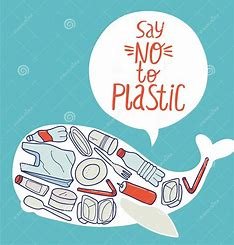Reducing plastic waste in your daily life is one of the most impactful steps you can take to help protect the environment. Plastics take hundreds of years to break down, and much of it ends up in our oceans, harming wildlife and polluting ecosystems. By making small, sustainable changes to your routine, you can significantly reduce your plastic footprint.

1. Use Reusable Bags
- Swap single-use plastic bags for reusable shopping bags made of cloth, jute, or other eco-friendly materials. Keep a few bags in your car or bag so you never forget them when you go shopping.
- Avoid plastic produce bags: Bring reusable mesh or fabric bags for fruits and vegetables instead of using plastic bags from the store.
2. Choose Reusable Bottles and Cups
- Reusable Water Bottles: Invest in a high-quality, durable water bottle (such as stainless steel or glass) to reduce reliance on plastic bottled water.
- Reusable Coffee Cups: Bring your own reusable coffee cup or tumbler when you get coffee from your favorite café. Many places even offer discounts for using your own cup.
- Straws: Say goodbye to disposable plastic straws. Opt for reusable alternatives made from stainless steel, bamboo, or silicone, or simply drink directly from the cup.
3. Avoid Single-Use Plastic Containers
- Use Glass or Stainless Steel Containers: Instead of using plastic containers for leftovers or takeout, invest in glass, stainless steel, or bamboo containers. These options are not only more durable but also healthier for storing food.
- Plastic-Free Lunches: Pack your lunch in reusable containers or use beeswax wraps as an alternative to plastic wrap. You can also use cloth napkins instead of paper towels.
- Buy in Bulk: Purchase products like grains, snacks, and cleaning supplies in bulk to reduce the packaging waste that comes with smaller plastic containers.
4. Shop for Plastic-Free Products
- Avoid Excessive Packaging: When shopping, choose items with minimal packaging or those packaged in recyclable materials like paper, glass, or aluminum.
- Bar Soap: Swap liquid soap or body wash in plastic bottles for bar soap, which typically comes in paper or cardboard packaging.
- Choose Natural Cleaning Products: Many household cleaning products come in plastic bottles. Switch to eco-friendly brands or make your own cleaners using natural ingredients like vinegar, baking soda, and lemon juice. You can also purchase refillable cleaning products.
5. Say No to Plastic Cutlery and Plates
- Bring Your Own Reusable Cutlery: If you’re ordering takeout or attending an event, bring your own reusable cutlery and utensils instead of using single-use plastic forks, spoons, and knives.
- Use Reusable Plates: For picnics, parties, or everyday meals, opt for reusable plates, cups, and cutlery made from materials like bamboo, stainless steel, or ceramics.
6. Reduce Plastic Waste in Personal Care Products
- Switch to Solid Personal Care Products: Look for bar shampoo and conditioner, toothpaste tablets or powders, and deodorant in paper or glass packaging instead of products in plastic containers.
- Refillable or Plastic-Free Razors: Consider using a safety razor with replaceable metal blades rather than disposable plastic razors.
- Choose Eco-Friendly Packaging: When buying skincare products, choose brands that use recyclable, compostable, or glass packaging.
7. Support Sustainable Brands
- Eco-Friendly Brands: Choose companies that prioritize sustainability and offer plastic-free, zero-waste products. Look for certifications such as Fair Trade, B Corp, or products that are cruelty-free and environmentally responsible.
- Buy Secondhand: Instead of buying new plastic items, consider buying secondhand or upcycled goods, especially for furniture, clothes, and home decor.
8. Avoid Fast Fashion and Plastic Clothing
- Opt for Natural Fibers: Choose clothing made from natural fibers like cotton, linen, wool, or hemp rather than synthetic fibers such as polyester or nylon, which shed plastic microfibers when washed.
- Buy Less, Choose Wisely: Focus on buying quality, durable clothing and shoes, and avoid fast fashion, which often uses plastic-based materials and produces waste.
9. Recycle Properly
- Know What Can Be Recycled: Familiarize yourself with the recycling rules in your area. Make sure you’re properly separating recyclables from non-recyclables and rinsing containers before placing them in the bin.
- Reduce Contamination: Avoid putting non-recyclable plastics (like plastic bags or cling film) in your recycling bin, as they can contaminate the entire batch of recyclables and prevent the materials from being reused.
10. Educate and Raise Awareness
- Spread the Word: Talk to your friends, family, and community about the importance of reducing plastic waste. Encourage others to make small changes, too.
- Support Plastic Bans and Legislation: Advocate for policies that reduce plastic waste, such as plastic bag bans or stricter recycling laws.
11. Participate in Plastic Waste Clean-Up Events
- Organize or Join Clean-Up Events: Participate in local clean-up events where you can help remove plastic waste from beaches, parks, or other natural areas. This will not only help reduce pollution but also raise awareness about plastic waste.
12. Be Mindful of Fast Food and Takeout Packaging
- Choose Dine-In or Bring Your Own Containers: If you’re ordering food to-go, ask if they can pack it in your reusable containers. Alternatively, avoid takeout when possible and choose dine-in options that don’t require disposable packaging.
- Avoid Plastic Forks and Spoons: When ordering fast food or takeout, ask for no plastic utensils or napkins. Many places will automatically include plastic cutlery, but you can request to skip them to reduce waste.
13. Invest in Plastic-Free Products for Special Occasions
- Plastic-Free Party Supplies: When hosting parties or gatherings, opt for reusable plates, cups, and utensils. You can even find reusable decorations and party accessories made from sustainable materials.
Conclusion
Reducing plastic waste doesn’t mean you need to make drastic changes all at once. Start by identifying small adjustments you can make in your daily life—whether it’s switching to reusable shopping bags, using less plastic packaging, or buying products with more sustainable materials. Each step, no matter how small, contributes to a larger movement of reducing plastic pollution and protecting the planet. By embracing these simple habits, you can help reduce plastic waste and inspire others to do the same.
